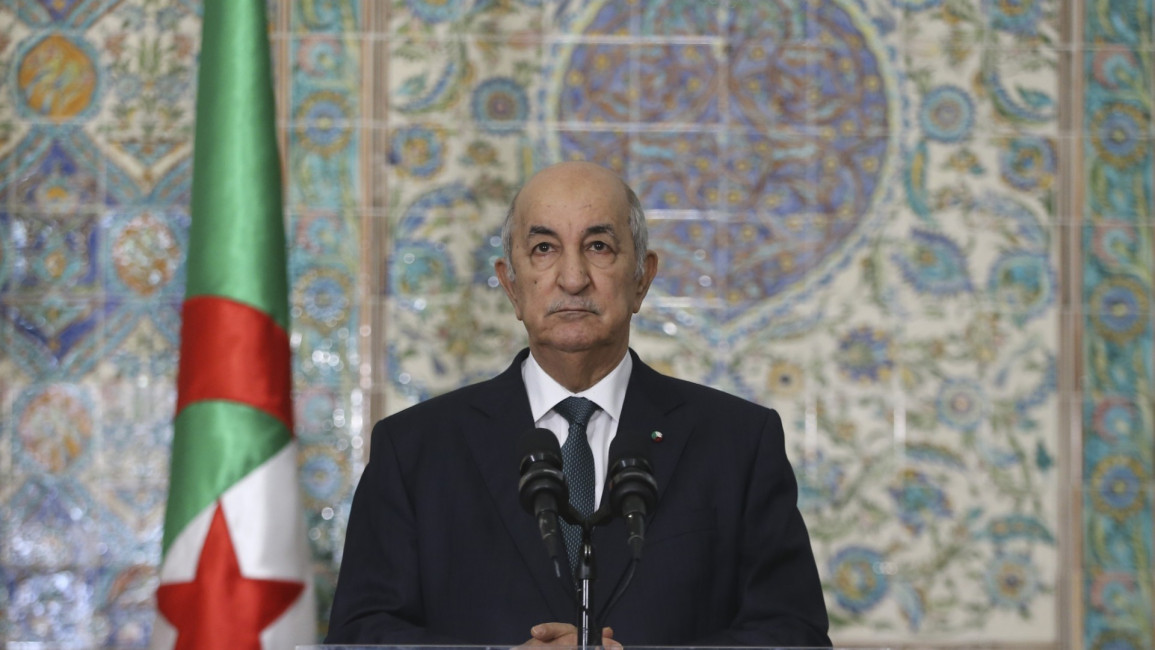Algeria adopts draft constitutional reforms as crackdown on dissent continues
"The proposal is fully in line with the requirements of modern state building and responds to the demands of the popular movement (Hirak)," said Tebboune late on Sunday, according to a statement.
Tebboune had promised to press for reforms during elections late last year after the resignation of long-time leader Abdelaziz Bouteflika under pressure from the movement, which widely rebuffed the polls.
But since the weekly Hirak protests were halted in March due to the novel coronavirus pandemic, political opponents, independent media and activists have also been targets of a crackdown.
The revised constitution has already been criticised by jurists and rejected by a group of parties and associations linked to Hirak, which has slammed it as a "laboratory constitution" and described the referendum as "treachery".
Two jailed activists from Algeria's anti-government "Hirak" protest movement have been on hunger strike for over a week to protest their incarceration, their lawyer said Saturday.
Twitter Post
|
Mohamed Tadjadit, nicknamed the "Hirak poet", and Noureddine Khimoud were arrested on August 23 and held in preventive detention for "inciting an unarmed gathering" and publishing material that "could harm national unity", according to their lawyers.
Five days later, they began a hunger strike "because they consider that the detention is abusive and unfounded", one of the defence attorneys, Zoubida Assoul, told AFP.
Tadjadit defied a ban on public protests imposed by the authorities in March, at the onset of the novel coronavirus pandemic, and took part in an anti-government rally on August 21 in Algiers, according to local media.
He had been arrested in November last year and sentenced the following month to 18 months in jail on charges of "undermining the national interest".
Tadjadit was among more than 70 members of the Hirak movement who were released from jail in January.
Anti-government protests led by the Hirak movement last year swept ailing president Abdelaziz Bouteflika from power but continued afterwards, demanding the ouster of the entire state apparatus, reviled by many Algerians as inept and corrupt.
The revised text must still be approved by parliament - a formality - before it is put to a popular referendum on November 1, the anniversary of the start of Algeria's 1954-1962 war of independence from France.
In the statement, the government pledged the reforms would bring a "radical change in the system of governance", prevent corruption and enshrine social justice and press freedoms in the constitution.
The revision also sets out to reinforce the "principle of separation of powers and balance of power, the moralisation of political life and transparency in the management of public funds," so as to "spare the country any drift toward tyrannical despotism," the statement added.
Algeria's constitution has been modified several times since the country's independence and was tailored to Bouteflika, who gained unlimited powers of appointment for top official positions.
Since Bouteflika's resignation, the judiciary has levied heavy prison sentences against former officials and influential businessmen once close to him, in particular over charges of corruption and nepotism.



